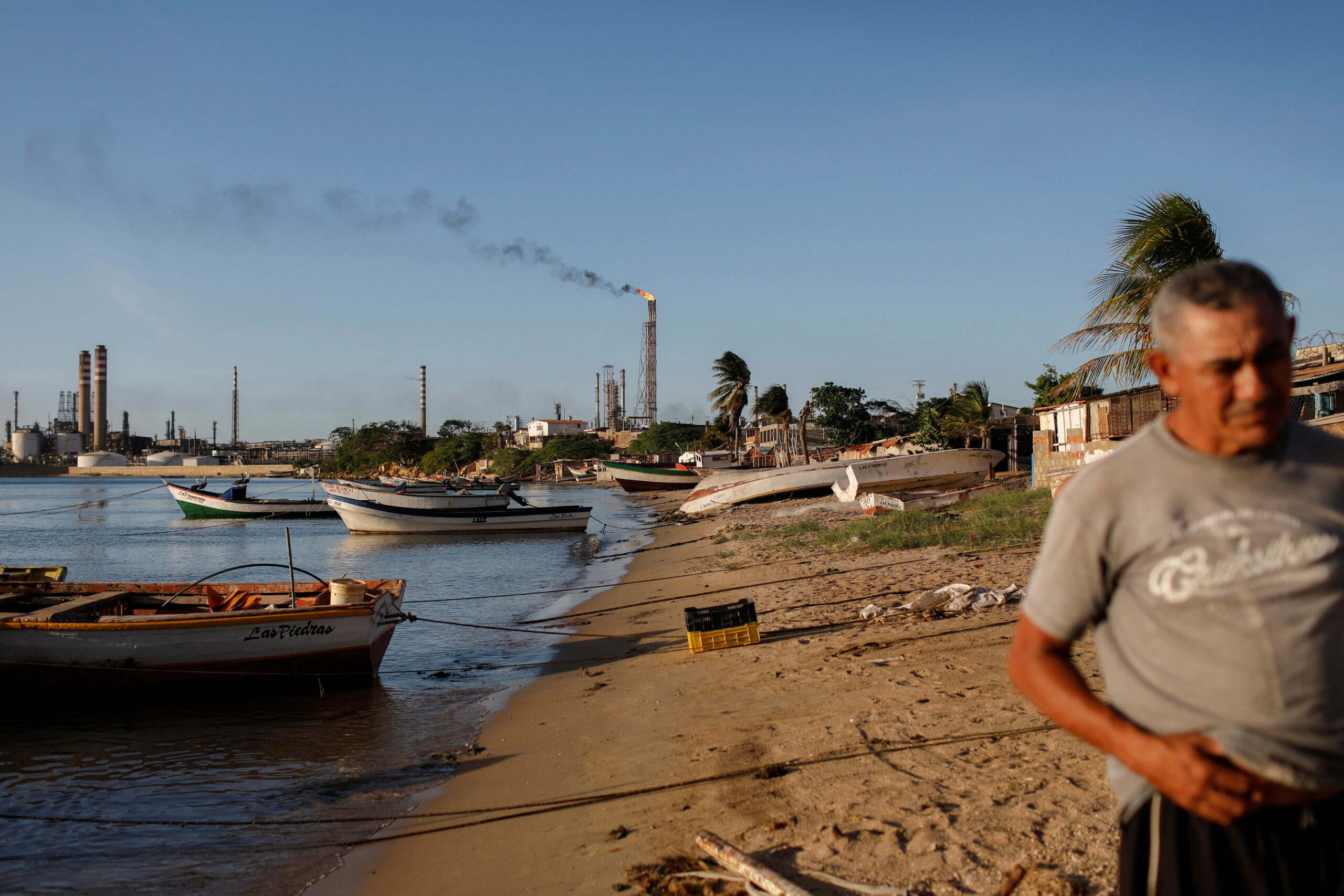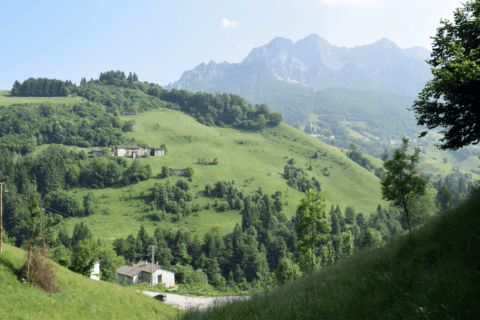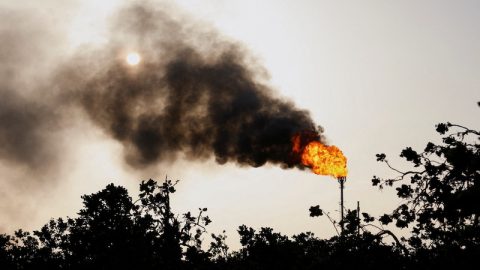In my quieter moments, often while leafing through the latest research and reports, I ponder the gradual degradation of our natural world. Human interaction, mainly through industrial and technological advancements, has left indelible marks on the Earth, and climate change remains a critical concern. This has led me to wonder about the state of the world for the next seven generations. If we consider a generation to span 25 years, this places the seventh generation in the year 2199. But what if we viewed generational shifts as cyclical, akin to the Earth’s revolutions around the sun? This perspective implies that every year is pivotal in shaping the future of our planet.
Today, the signs of climate change, though not yet disrupting our daily lives with immediate urgency, are undeniably present. From a broader environmental perspective, the consequences of a warming planet are profound, especially for our flora and fauna. Are they adapting to these changing conditions? History shows they have adapted before, but at what cost and to what extent can they continue to do so under the accelerating pace of human activity?
Reflecting on the past year alone, the increase in severe weather events, such as thunderstorms and tornado warnings, starkly contrasts with the isolated incidents of my childhood. This trend towards more extreme weather is problematic to ignore and has heightened my sense of preparedness as we approach another unpredictable season.
Looking ahead to 2199, I often wonder whether our future generations will be equipped to handle and adapt to these challenges. How will they fare against the potential storms of change and uncertainty? The decisions we make today will shape their reality.
As I observe the world around us, it becomes increasingly clear that we need a deeper understanding of our role within our ecosystem. Our survival and the preservation of life systems depend on our ability to sustain our ecological homeland. Without nurturing our natural resources—our water, air, and biodiversity—we risk not just hardship but possible extinction.
This realization brings an acute responsibility to act, not just for ourselves but for the entire planet. It requires acknowledging that humanity is not the center of existence but a part of a larger ecological equation. Each of us has a role to play in caring for our planet, preserving the systems that support all life forms.
The path forward involves embracing ecological knowledge to become effective stewards of our environment. This stewardship must be ingrained in our collective consciousness, influencing actions and policies that not only address the immediate environmental issues but also consider the long-term impact on the Earth and its inhabitants.
By fostering this ecological awareness and responsibility through generational education, I hope that by 2199, humanity will have cultivated a profound respect for our planet. This respect must translate into actions that support sustainable living and consider the welfare of the countless generations to follow.
As we continue on this journey, let us strive to leave a legacy that the seventh generation and beyond can look back on with gratitude—one where they inherit a world not only habitable but flourishing. A world where they, too, can thrive and continue the cycle of stewardship and respect for the richness of our shared Earth.
– By Rye Karonhiowanen Barberstock
The post Reflecting on the Future: The Importance of Generational Stewardship in Combating Climate Change appeared first on Indigenous Climate Hub.
Reflecting on the Future: The Importance of Generational Stewardship in Combating Climate Change
Climate Change
Curbing methane is the fastest way to slow warming – but we’re off the pace
Gabrielle Dreyfus is chief scientist at the Institute for Governance and Sustainable Development, Thomas Röckmann is a professor of atmospheric physics and chemistry at Utrecht University, and Lena Höglund Isaksson is a senior research scholar at the International Institute for Applied Systems Analysis.
This March scientists and policy makers will gather near the site in Italy where methane was first identified 250 years ago to share the latest science on methane and the policy and technology steps needed to rapidly cut methane emissions. The timing is apt.
As new tools transform our understanding of methane emissions and their sources, the evidence they reveal points to a single conclusion: Human-caused methane emissions are still rising, and global action remains far too slow.
This is the central finding of the latest Global Methane Status Report. Four years into the Global Methane Pledge, which aims for a 30% cut in global emissions by 2030, the good news is that the pledge has increased mitigation ambition under national plans, which, if fully implemented, could result in the largest and most sustained decline in methane emissions since the Industrial Revolution.
The bad news is this is still short of the 30% target. The decisive question is whether governments will move quickly enough to turn that bend into the steep decline required to pump the brake on global warming.
What the data really show
Assessing progress requires comparing three benchmarks: the level of emissions today relative to 2020, the trajectory projected in 2021 before methane received significant policy focus, and the level required by 2030 to meet the pledge.
The latest data show that global methane emissions in 2025 are higher than in 2020 but not as high as previously expected. In 2021, emissions were projected to rise by about 9% between 2020 and 2030. Updated analysis places that increase closer to 5%. This change is driven by factors such as slower than expected growth in unconventional gas production between 2020 and 2024 and lower than expected waste emissions in several regions.
Gas flaring soars in Niger Delta post-Shell, afflicting communities
This updated trajectory still does not deliver the reductions required, but it does indicate that the curve is beginning to bend. More importantly, the commitments already outlined in countries’ Nationally Determined Contributions and Methane Action Plans would, if fully implemented, produce an 8% reduction in global methane emissions between 2020 and 2030. This would turn the current increase into a sustained decline. While still insufficient to reach the Global Methane Pledge target of a 30% cut, it would represent historical progress.
Solutions are known and ready
Scientific assessments consistently show that the technical potential to meet the pledge exists. The gap lies not in technology, but in implementation.
The energy sector accounts for approximately 70% of total technical methane reduction potential between 2020 and 2030. Proven measures include recovering associated petroleum gas in oil production, regular leak detection and repair across oil and gas supply chains, and installing ventilation air oxidation technologies in underground coal mines. Many of these options are low cost or profitable. Yet current commitments would achieve only one third of the maximum technically feasible reductions in this sector.
Recent COP hosts Brazil and Azerbaijan linked to “super-emitting” methane plumes
Agriculture and waste also provide opportunities. Rice emissions can be reduced through improved water management, low-emission hybrids and soil amendments. While innovations in technology and practices hold promise in the longer term, near-term potential in livestock is more constrained and trends in global diets may counteract gains.
Waste sector emissions had been expected to increase more rapidly, but improvements in waste management in several regions over the past two decades have moderated this rise. Long-term mitigation in this sector requires immediate investment in improved landfills and circular waste systems, as emissions from waste already deposited will persist in the short term.
New measurement tools
Methane monitoring capacity has expanded significantly. Satellite-based systems can now identify methane super-emitters. Ground-based sensors are becoming more accessible and can provide real-time data. These developments improve national inventories and can strengthen accountability.
However, policy action does not need to wait for perfect measurement. Current scientific understanding of source magnitudes and mitigation effectiveness is sufficient to achieve a 30% reduction between 2020 and 2030. Many of the largest reductions in oil, gas and coal can be delivered through binding technology standards that do not require high precision quantification of emissions.
The decisive years ahead
The next 2 years will be critical for determining whether existing commitments translate into emissions reductions consistent with the Global Methane Pledge.
Governments should prioritise adoption of an effective international methane performance standard for oil and gas, including through the EU Methane Regulation, and expand the reach of such standards through voluntary buyers’ clubs. National and regional authorities should introduce binding technology standards for oil, gas and coal to ensure that voluntary agreements are backed by legal requirements.
One approach to promoting better progress on methane is to develop a binding methane agreement, starting with the oil and gas sector, as suggested by Barbados’ PM Mia Mottley and other leaders. Countries must also address the deeper challenge of political and economic dependence on fossil fuels, which continues to slow progress. Without a dual strategy of reducing methane and deep decarbonisation, it will not be possible to meet the Paris Agreement objectives.
Mottley’s “legally binding” methane pact faces barriers, but smaller steps possible
The next four years will determine whether available technologies, scientific evidence and political leadership align to deliver a rapid transition toward near-zero methane energy systems, holistic and equity-based lower emission agricultural systems and circular waste management strategies that eliminate methane release. These years will also determine whether the world captures the near-term climate benefits of methane abatement or locks in higher long-term costs and risks.
The Global Methane Status Report shows that the world is beginning to change course. Delivering the sharper downward trajectory now required is a test of political will. As scientists, we have laid out the evidence. Leaders must now act on it.
The post Curbing methane is the fastest way to slow warming – but we’re off the pace appeared first on Climate Home News.
Curbing methane is the fastest way to slow warming – but we’re off the pace
Climate Change
World leaders invited to see Pacific climate destruction before COP31
The leaders and climate ministers of governments around the world will be invited to meetings on the Pacific islands of Fiji, Palau and Tuvalu in the months leading up to the COP31 climate summit in November.
Under a deal struck between Pacific nations, Fiji will host the official annual pre-COP meeting, at which climate ministers and negotiators discuss contentious issues with the COP Presidency to help make the climate summit smoother.
This pre-COP, expected to be held in early October, will include a “special leaders’ component” hosted in neighbouring Tuvalu – 2.5-hour flight north – according to a statement issued by the Australian COP31 President of Negotiations Chris Bowen on LinkedIn on Thursday.
Bowen said this “will bring a global focus to the most pressing challenges facing our region and support investment in solutions which are fit for purpose for our region.” Australia will provide operational and logistical support for the event, he said.
Like many Pacific island nations, Tuvalu, which is home to around 10,000 people, is threatened by rising sea levels, as salt water and waves damage homes, water supplies, farms and infrastructure.
Dozens of heads of state and government usually attend COP summits, but only a handful take part in pre-COP meetings. COP31 will be held in the Turkish city of Antalya in November, after an unusual compromise deal struck between Australia and Türkiye.
In addition, Pacific country Palau will host a climate event as part of the annual Pacific Islands Forum (PIF) – which convenes 18 Pacific nations – in August.
Palau’s President Surangel Whipps Jr told the Australian Broadcasting Corporation (ABC) that this meeting would be a “launching board” to build momentum for COP31 and would draw new commitments from other countries to help Pacific nations cut emissions and adapt to climate change.
“At the PIF our priorities are going to be 100 per cent renewables, the ocean-climate nexus and … accelerating investments that build resilience from climate change,” he told ABC.
The post World leaders invited to see Pacific climate destruction before COP31 appeared first on Climate Home News.
World leaders invited to see Pacific climate destruction before COP31
Climate Change
There is hope for Venezuela’s future – and it isn’t based on oil
Alejandro Álvarez Iragorry is a Venezuelan ecologist and coordinator of Clima 21, an environmental NGO. Cat Rainsford is a transition minerals investigator for Global Witness and former Venezuela analyst for a Latin American think tank.
In 1975, former Venezuelan oil minister Juan Pablo Pérez Alfonzo gave a now infamous warning.
“Oil will bring us ruin,” he declared. “It is the devil’s excrement. We are drowning in the devil’s excrement.”
At the time, his words seemed excessively gloomy to many Venezuelans. The country was in a period of rapid modernisation, fuelled by its booming oil economy. Caracas was a thriving cultural hotspot. Everything seemed good. But history proved Pérez right.
Over the following decades, Venezuela’s oil dependence came to seem like a curse. After the 1980s oil price crash, political turmoil paved the way for the election of populist Hugo Chávez, who built a socialist state on oil money, only for falling prices and corruption to drive it into ruin.
By 2025, poverty and growing repression under Chávez’s successor Nicolás Maduro had forced nearly 8 million Venezuelans to leave the country.
Venezuela is now at a crossroads. Since the US abducted Maduro on January 3 and seized control of the country’s oil revenues in a nakedly imperial act, all attention has been on getting the country’s dilapidated oil infrastructure pumping again.
But Venezuelans deserve more than plunder and fighting over a planet-wrecking resource that has fostered chronic instability and dispossession. Right now, 80% of Venezuelans live below the poverty line. Venezuelans are desperate for jobs, income and change.
Real change, though, won’t come through more oil dependency or profiteering by foreign elites. Instead, it is renewable energy that offers a pathway forward, towards sovereignty, stability and peace.
Guri Dam and Venezuela’s hydropower decline
Venezuela boasts some of the strongest potential for renewable energy generation in the region. Two-thirds of the country’s own electricity comes from hydropower, mostly from the massive Guri Dam in the southern state of Bolívar. This is one of the largest dams in Latin America with a capacity of over 10 gigawatts, even providing power to parts of Colombia and Brazil.
Guri has become another symbol of Venezuela’s mismanagement. Lack of diversification caused over-reliance on Guri for domestic power, making the system vulnerable to droughts. Poor maintenance reduced Guri’s capacity and planned supporting projects such as the Tocoma Dam were bled dry by corruption. The country was left plagued by blackouts and increasingly turned to dirty thermoelectric plants and petrol generators for power.
Today, industry analysis suggests that Venezuela is producing at about 30% of its hydropower capacity. Rehabilitating this neglected infrastructure could re-establish clean power as the backbone of domestic industry, while the country’s abundant river system offers numerous opportunities for smaller, sustainable hydro projects that promote rural electrification.


Venezuela also has huge, untapped promise in wind power that could provide vital diversification from hydropower. The coastal states of Zulia and Falcón boast wind speeds in the ideal range for electricity generation, with potential to add up to 12 gigawatts to the grid. Yet planned projects in both states have stalled, leaving abandoned turbines rusting in fields and millions of dollars unaccounted for.
Solar power is more neglected. One announced solar plant on the island of Los Roques remains non-functional a decade later, and a Chávez-era programme to supply solar panels to rural households ground to a halt when oil prices fell. Yet nearly a fifth of the country receives levels of solar radiation that rival leading regions such as northern Chile.
Developing Venezuela’s renewables potential would be a massive undertaking. Investment would be needed, local concerns around a just and equitable transition would have to be navigated and infrastructure development carefully managed.
Rebuilding Venezuela with a climate-driven energy transition
A shift in political vision would be needed to ensure that Venezuela’s renewable energy was not used to simply free up more oil for export, as in the past, but to power a diversified domestic economy free from oil-driven cycles of boom and bust.
Ultimately, these decisions must be taken by democratically elected leaders. But to date, no timeline for elections has been set, and Venezuela’s future hangs in the balance. Supporting the country to make this shift is in all of our interests.
What’s clear is that Venezuela’s energy future should not lie in oil. Fossil fuel majors have not leapt to commit the estimated $100 billion needed to revitalise the sector, with ExxonMobil declaring Venezuela “uninvestable”. The issues are not only political. Venezuela’s heavy, sour crude is expensive to refine, making it dubious whether many projects would reach break-even margins.
Behind it all looms the spectre of climate change. The world must urgently move away from fossil fuels. Beyond environmental concerns, it’s simply good economics.


Recent analysis by the International Renewable Energy Agency finds that 91% of new renewable energy projects are now cheaper than their fossil fuel alternatives. China, the world’s leading oil buyer, is among the most rapid adopters.
Tethering Venezuela’s future to an outdated commodity leaves the country in a lose-lose situation. Either oil demand drops and Venezuela is left with nothing. Or climate change runs rampant, devastating vulnerable communities with coastal loss, flooding, fires and heatwaves. Meanwhile, Venezuela remains locked in the same destructive economic swings that once led to dictatorship and mass emigration. There is another way.
Venezuelans rightfully demand a political transition, with their own chosen leaders. But to ensure this transition is lasting and stable, Venezuela needs more – it needs an energy transition.
The post There is hope for Venezuela’s future – and it isn’t based on oil appeared first on Climate Home News.
There is hope for Venezuela’s future – and it isn’t based on oil
-
Greenhouse Gases7 months ago
Guest post: Why China is still building new coal – and when it might stop
-
Climate Change7 months ago
Guest post: Why China is still building new coal – and when it might stop
-

 Greenhouse Gases2 years ago
Greenhouse Gases2 years ago嘉宾来稿:满足中国增长的用电需求 光伏加储能“比新建煤电更实惠”
-
Climate Change2 years ago
Bill Discounting Climate Change in Florida’s Energy Policy Awaits DeSantis’ Approval
-
Climate Change2 years ago
Spanish-language misinformation on renewable energy spreads online, report shows
-

 Climate Change2 years ago
Climate Change2 years ago嘉宾来稿:满足中国增长的用电需求 光伏加储能“比新建煤电更实惠”
-
Climate Change Videos2 years ago
The toxic gas flares fuelling Nigeria’s climate change – BBC News
-

 Carbon Footprint2 years ago
Carbon Footprint2 years agoUS SEC’s Climate Disclosure Rules Spur Renewed Interest in Carbon Credits








